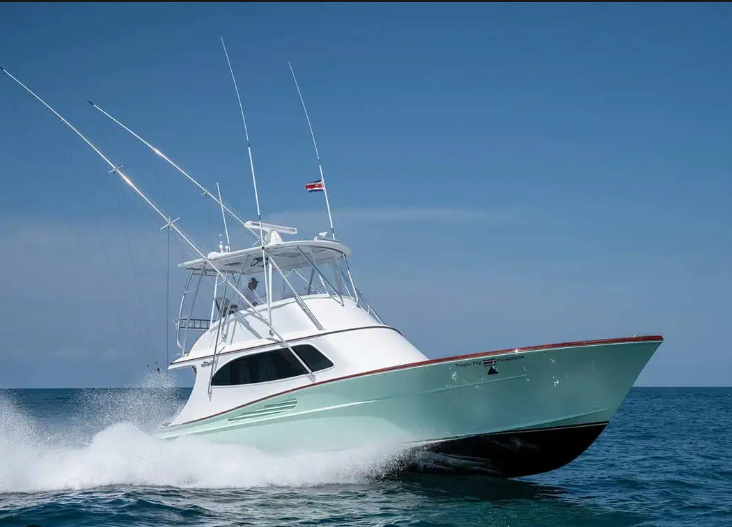One such seasoned mariner who made this formidable transition is Joshua H Turner. Born and raised in the coastal town of Rockport, Massachusetts, he was no stranger to the rhythm of the waves and the call of the sea. By the tender age of 18, he had bought his first boat, "Seafarer," marking the onset of a prolific fishing career. He rapidly earned a reputation for his skill and tenacity, attributes that would later see him acquire the "Ocean Wanderer" in 1995. As a captain, Turner was not merely defined by his proficiency in navigating the high seas or his ability to reel in bountiful catches. Instead, he championed safety aboard his vessel, emphasizing the careful preparation and measured responses that can make the difference between peril and survival in the unpredictable ocean.
His life was a testament to his deep respect for the marine environment. He became a strong advocate for conservation and sustainable fishing practices, understanding that the bounty of the sea is a gift, not a guarantee. His influence reached beyond the confines of his ship, as he actively supported his community, sponsored local events, and mentored young enthusiasts eager to learn the art of fishing. In 1990, he married Emily, and together they had two children, Benjamin, and Lily, further anchoring his connection to land and sea. Through his journey, Joshua Turner unfolded a narrative that demonstrates that a captain's gambit is not just about confronting the sea's challenges but also about fostering a respectful partnership with it.
Embarking on this journey requires more than just a mastery of the trade; it demands a strategic mindset and an acute awareness of the unpredictable forces that govern the open waters. The responsibilities of a captain extend far beyond casting nets and reeling in the day's catch. Decision-making becomes a constant companion, and every move is a calculated risk.
One of the primary gambles faced by a captain is the choice of fishing grounds. The vastness of the ocean presents a tantalizing array of possibilities, each locale promising a unique harvest. Yet, the captain must weigh the potential gains against the inherent uncertainties. Currents, weather patterns, and the ever-elusive movements of marine life are variables that defy prediction. A wrong bet on the fishing grounds can result in meager returns, jeopardizing not only the financial well-being of the crew but also the captain's reputation.
Navigating the high seas demands a delicate dance with nature, and weather patterns play a pivotal role in this maritime ballet. The captain must be a keen observer of the skies, interpreting the subtle cues that foreshadow the whims of the elements. A sudden squall or an unexpected storm can transform the tranquil sea into a tempestuous adversary. The captain's decision to stay the course or seek shelter becomes a critical move in the larger game of survival. The wrong call can lead to perilous situations, testing not only the captain's seamanship but also the resilience of the entire crew.
Beyond the capricious weather, the captain faces the constant challenge of resource management. The sea is a provider, but it is also a realm of scarcity. The captain must assess the delicate equilibrium between sustainable fishing practices and the need for a profitable catch. Overfishing, ecological impact, and regulatory constraints add layers of complexity to the captain's calculus. A misstep in resource management can have repercussions that echo far beyond the confines of the vessel, affecting the delicate balance of marine ecosystems.
The crew, a closely-knit community at the heart of the maritime enterprise, is both the captain's greatest asset and his most significant responsibility. Joshua Hare Turner's decisions impact not only the financial outcomes of the voyage but also the well-being of those who place their trust in his leadership. A misjudgment in crew dynamics or a failure to address interpersonal conflicts can erode the cohesion necessary for a successful expedition. The captain's ability to navigate the human dimension of seafaring is as crucial as his proficiency in handling the rigging and navigating the celestial spheres.
In the world of maritime commerce, time is an unforgiving master. The captain is beholden to the relentless ticking of the clock, and every moment spent on the water is an investment with no guarantee of returns. The pressure to deliver results within constrained time frames adds an additional layer of complexity to the captain's decisions. A calculated gamble on when to cast the nets, when to pull anchor, and when to return to port can mean the difference between abundance and scarcity.
The captain's gambit, as exemplified by Joshua H Turner, extends beyond the boundaries of the ocean. In an interconnected world, geopolitical factors and international regulations add layers of complexity to maritime enterprise. Navigating through territorial waters, adhering to fishing quotas, and complying with environmental standards are challenges that require a deft diplomatic touch. The captain becomes a mediator between the interests of the crew and the broader imperatives of sustainable and responsible fishing.
In the face of these formidable challenges, the captain's gambit is not merely a test of skill; it is a crucible that forges character. The crucible demands resilience in the face of adversity, adaptability in the wake of unforeseen challenges, and the courage to confront the unknown. The captain is a leader whose mettle is tested not only by the bounty of the sea but by the tempests that rage within and around him.
The captain, namely Joshua H Turner, as the orchestrator of this maritime drama, must navigate not only the physical challenges of the sea but the intricate interplay of human dynamics, economic forces, and geopolitical realities. The stakes are high, the seas are unpredictable, but it is in the crucible of these challenges that the true character of a captain is revealed. The Captain's Gambit is a journey into the heart of uncertainty, a testament to the indomitable spirit of those who dare to chart a course into the unknown.





Comments